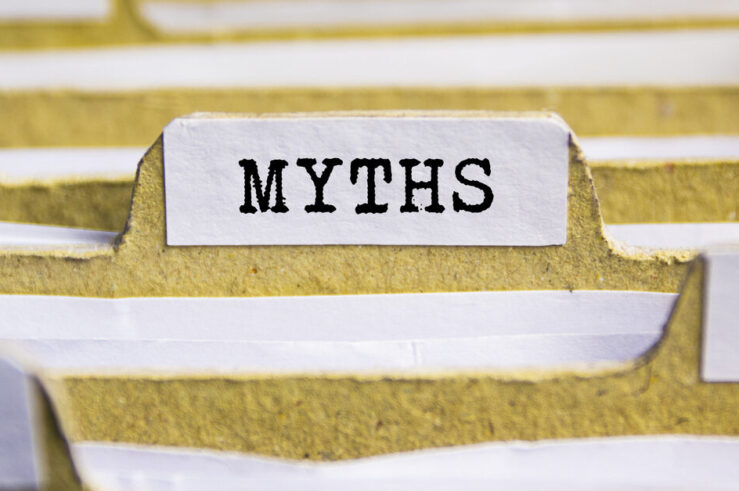Showing results for: “premium natural and organic”
The Antitrust Prohibition of Favoritism, or the Imposition of Corporate Selflessness
It is my endeavor to scrutinize the questionable assessment articulated against default settings in the U.S. Justice Department’s lawsuit against Google. Default, I will argue, is no antitrust fault. Default in the Google case drastically differs from default referred to in the Microsoft case. In Part I, I argue the comparison is odious. Furthermore, in ... The Antitrust Prohibition of Favoritism, or the Imposition of Corporate Selflessness
The market realities that undermine the antitrust case against Google
As the Google antitrust discussion heats up on its way toward some culmination at the FTC, I thought it would be helpful to address some of the major issues raised in the case by taking a look at what’s going on in the market(s) in which Google operates. To this end, I have penned a ... The market realities that undermine the antitrust case against Google
Fed should stay out of Google/Twitter social search spat
As has become customary with just about every new product announcement by Google these days, the company’s introduction on Tuesday of its new “Search, plus Your World” (SPYW) program, which aims to incorporate a user’s Google+ content into her organic search results, has met with cries of antitrust foul play. All the usual blustering and ... Fed should stay out of Google/Twitter social search spat
Is Google Search Bias Consistent with Anticompetitive Foreclosure?
In my series of three posts (here, here and here) drawn from my empirical study on search bias I have examined whether search bias exists, and, if so, how frequently it occurs. This, the final post in the series, assesses the results of the study (as well as the Edelman & Lockwood (E&L) study to ... Is Google Search Bias Consistent with Anticompetitive Foreclosure?
The Amazon-Whole Foods merger: Natural and organic competition in the evolving grocery industry
What actually happened in the year following the merger is nearly the opposite: Competition among grocery stores has been more fierce than ever. “Offline” retailers are expanding — and innovating — to meet Amazon’s challenge, and many of them are booming. Disruption is never neat and tidy, but, in addition to saving Whole Foods from potential oblivion, the merger seems to have lit a fire under the rest of the industry. This result should not be surprising to anyone who understands the nature of the competitive process. But it does highlight an important lesson: competition often comes from unexpected quarters and evolves in unpredictable ways, emerging precisely out of the kinds of adversity opponents of the merger bemoaned.
Why can’t we have a better press corps?: WaPo Google antitrust edition
Steven Pearlstein at the Washington Post asks if it’s “Time to loosen Google’s grip.” The article is an analytical mess. Pearlstein is often a decent business reporter–I’m not sure what went wrong here, but this is a pretty shoddy piece of antitrust journalism. For the most part, the article is a series of tired claims ... Why can’t we have a better press corps?: WaPo Google antitrust edition
Investigating Search Bias: Measuring Edelman & Lockwood’s Failure to Measure Bias in Search
Last week I linked to my new study on “search bias.” At the time I noted I would have a few blog posts in the coming days discussing the study. This is the first of those posts. A lot of the frenzy around Google turns on “search bias,” that is, instances when Google references its ... Investigating Search Bias: Measuring Edelman & Lockwood’s Failure to Measure Bias in Search
The FTC Tacks Into the Gale, Battening No Hatches: Part 2
Part 1 of this piece can be found here. Emergence of the ‘Neo-Brandeisians’ Thus, matters unfolded until the curtain began to descend on the second Obama term in 2016. In the midst of presidential primary season, a targeted political challenge to the prevailing economic approach to antitrust first came to light. No one has yet ... The FTC Tacks Into the Gale, Battening No Hatches: Part 2
Robert Crandall on We Need More Lawyers!
Several years ago, when Cliff Winston and I began looking at the incomes earned by lawyers, we were struck by several facts. First, after accounting for age, years of education, experience and various other demographic influences, we found that the income premium earned by lawyers had increased by about 50 percent between 1975 and 2004, ... Robert Crandall on We Need More Lawyers!
Does Apple’s “Discrimination” Against Rival Apps in the App Store harm Consumers?
A spate of recent newspaper investigations and commentary have focused on Apple allegedly discriminating against rivals in the App Store. The underlying assumption is that Apple, as a vertically integrated entity that operates both a platform for third-party apps and also makes it own apps, is acting nefariously whenever it “discriminates” against rival apps through ... Does Apple’s “Discrimination” Against Rival Apps in the App Store harm Consumers?
10 Things the American Innovation and Choice Online Act Gets Wrong
The Senate Judiciary Committee is set to debate S. 2992, the American Innovation and Choice Online Act (or AICOA) during a markup session Thursday. If passed into law, the bill would force online platforms to treat rivals’ services as they would their own, while ensuring their platforms interoperate seamlessly. The bill marks the culmination of ... 10 Things the American Innovation and Choice Online Act Gets Wrong
Why Take Antitrust? (Fall 2010 Edition)
In what has become an annual affair, around this time of the year, I like to make the case for law students to take antitrust. Each year, the post is edited and tweaked a little bit. So, without further ado, here is this year’s edition of “Why Take Antitrust?” As the start of the new ... Why Take Antitrust? (Fall 2010 Edition)








